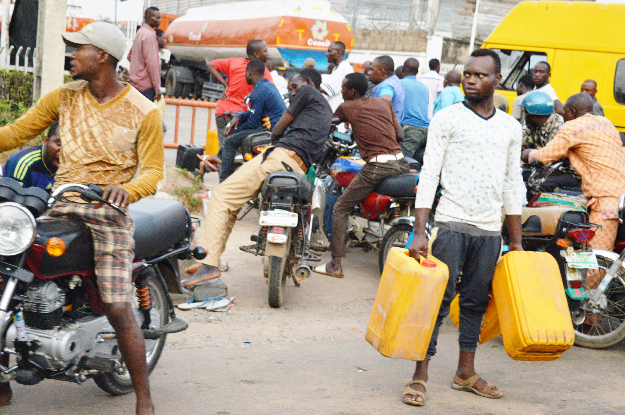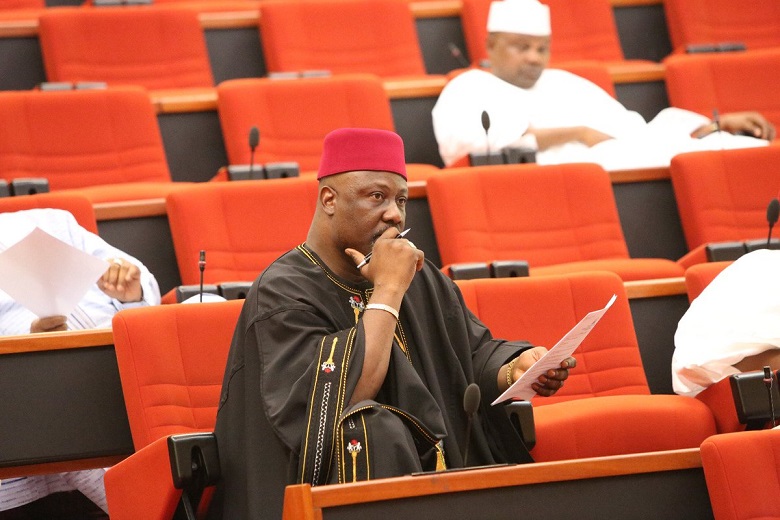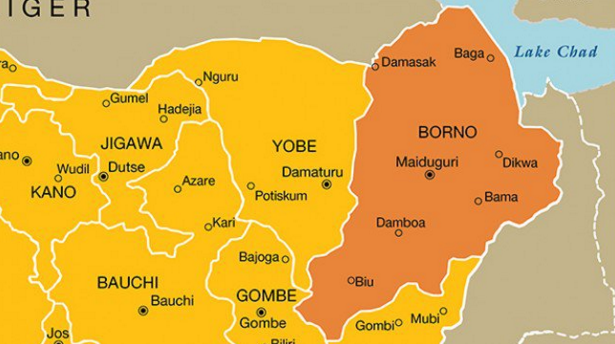BY WILLIAMS EKANEM
Again, government of the day in Nigeria has failed to alleviate suffering of Nigerians caused by acute shortage of fuel, notwithstanding the country’s status as the chief oil producing country on the African continent.
Year in year out, governments in power have failed woefully to stem the reoccurring hard bite of fuel scarcity, especially at festive seasons, with this season turning out one of the worst.
Advertisement
Over the years, a combination of well-known factors, definitely not unforeseen, ranging from inadequate supply, pipeline vandalism, to unending issues with independent marketers have floored whatsoever effort, if any, by the government to ensure adequate fuel supply especially at festive periods.
Anietie Akpan, a Lagos-based entrepreneur whose business is suffering from pangs of the distressed economy while commenting on his experience shortly before Christmas said, “the fuel crisis is getting worse, I bought from the black market the other day at 200 Nigerian naira per liter and can’t even get it at that price now,” echoing an expression of frustration that cuts through the entire nation.
For the 2017 end-of-year fuel crisis, economic watchers point at the gap in the volume of products between supply and demand and lack of government incisive action, even when they saw it coming, as in past years.
Advertisement
Bassey Udo, an oil industry analyst points out that, “the primary reason for the current crisis is that the Nigerian National Petroleum Company- NNPC, is the only importer of petroleum products. It also gives preference to the major marketers -Mobil, Conoil, Total, Forte Oil- in its allocation, rather than independent marketers who have the largest number of retail outlets across the country, to better serve the people.”
Udo, who is Business/Economy Editor of Premium Times, the leading online investigative publication in Nigeria added that, “to assert their importance, members of the Independent Petroleum Marketers Association of Nigeria, IPMAN, threatened to go on strike from December 10, 2017 if government does not supply them products at the same ex-depot price of N137 per liter like major marketers, to enable them sell at N145 per liter for profit margin.”
Findings show that government initially took the strike threat with levity and by the time the government “acceded to their demand, it was on the same day the strike was billed to begin, during which panic buying and hoarding for the Christmas season were already in top gear.”
Government abject inefficiency here is that none of the reoccurring causes of the perennial fuel scarcity takes anyone by surprise, rather government functionaries are used to either ignoring the issues or reacting belatedly to them.
Advertisement
A case in point is how current petroleum matters helmsman, Dr. Ibe Kachikwu, waited until early December, barely few days to the rush moments that characterize the season in the country to roll out emergency plans, a typical firefighting approach that has failed to forestall the current petrol scarcity.
Kachikwu, who is the Minister in charge of Petroleum Resources, while announcing emergency plans, stated that fuel shortages “were occasioned by a gap in the volume of products available in the country,” caused by reluctance of oil marketers to import petrol. The Petroleum Minister attributed the shortfall to rising price of crude oil, which he indicated forced oil marketers to defer imports.
Oil marketers have often been the scapegoat for all fuel scarcity, with government always using them as the excuse for their continuous failures to get it right in the highest oil producing country in Africa, currently put at 2.53 million barrels per day.
The oil marketers have been embroiled in a never-ending fight with the government in subsidizing cost of fuel per liter. With government opting to subsidize the difference between the landing cost of imported petroleum product and retail price above N86 per liter, it means huge amounts must be paid as subsidies to petroleum products at filling stations.
Advertisement
The present government is said to have inherited a backlog of over 600 billion naira subsidy bill due to marketers, of which payment is an issue. This outstanding subsidy amount and the occurring bank interest in US dollars is a source of disincentive for the oil marketers to import, especially the Independent Petroleum Marketers. This causes drop in supply, hence fuel shortages and the attendant crisis, more so when nobody knows the approximate quantity the country needs at any point in time.
A top industry executive disclosed to Financial Times in May 2015 that during the fuel crisis of that year, NNPC “had only about two days of fuel in stock.”
Advertisement
Udo pondered, “ how do you replenish the stock when nobody knows exactly what the country’s demand is? From the NNPC through the Ministry of Petroleum Resources, and the Petroleum Products Pricing Regulatory Agency, PPPRA no one can say categorically what the daily national fuel consumption figure is.”
According to him, the statistics for daily consumption are as varied as the purpose for which each agency is issuing them; when calculating subsidy claims for products, marketers, the NNPC and PPPRA put the figure at between 45 and 60 million liters against conservative industry figures of between 30 and 35 million liters.
Advertisement
But the intractable fuel scarcity, especially at festive periods goes far beyond supply and demand and the unending battle with marketers. There are also the activities of the larger-than-life trade unions in the industry, notably, the Petroleum and Natural Gas Senior Staff Association of Nigeria, PENGASSAN.
In the December 2017 excruciating scarcity, the body was at the center of it all. Like with other crisis, the union, citing what it called unfair labor practices by some oil companies and subsequent termination of appointment of its members by Neconde Energy Limited, called on the government to direct the company to recall sacked members or face workers strike action by December 18, 2017.
Advertisement
In the interim, the union “appealed to all Nigerians to show understanding and to use this window to stockpile adequate petrol and other petroleum products that will last them during the festive period, as this strike will be indefinite.”
Predictably, there was an immediate reaction to the strike threat, oil prices climbed more than one per cent the very next day, as traders covered shorts after sharp losses the previous day brought on by an unexpectedly large rise in U.S. stocks of refined fuels.
“Short covering in the market, together with the threat of a strike by Nigeria’s key oil union, provided some influence on oil prices in today’s session,” said Abhishek Kumar, senior energy analyst at Interfax Energy’s Global Gas Analytics in London, the next day.
As if that is not enough, besides the labor union muscle flexing, Nigeria oil sector is the apple pie of not only corruption, but high-level inefficiency and mismanagement. It is generally seen as a national cake, where anyone with access helps his/her self with whatever can be gotten hold of. Every government of the day makes sure their kindred is in charge of daily activities to ensure good hold on the largesse.
The outcome of this unfortunate scenario is the ever-present motion without movement, where nothing gets done, because every step is interpreted with tribal and economic sentiments, a case in point being the very recent open display of power play between the Petroleum Minister and the NNPC chief executive officer, such that gave room to the rhetorical question over the years, if Nigeria’s oil wealth is a curse or a blessing.
In their published work, “Crude Oil Resource: A Blessing or Curse to Nigeria,” in Journal of Research in National Development, Tamuno and Felix, 2006 discussed the issue and concluded with a call on the federal government to “put in place appropriate measures to stem further mismanagement and looting…of revenue from crude oil.” Unfortunately, more than a decade after the call, the end to fuel crisis as we know it, is not in sight anytime soon.
Listing “13 reasons fuel crisis persists in Nigeria,” in Premium Times, Udo stated that the causes range from inadequate supply, dysfunctional refineries, no new refineries, pipeline vandalism, fuel importation constraints to drop in global oil prices, poor import planning schedule, corruption-diversion-smuggling, foreign exchange crisis, fuel crisis as good business time for some, pay back by marketers, NNPC internal politics and absence of deregulation.
Even as a former Minister of Petroleum, President Buhari’s has not done anything visible to alleviate the horrible state of affairs, with about a year to the end of his four years tenure.
Announcing government ad-hoc plans to end the current fuel scarcity, Kachikwu hinted that the technical committee has been benchmarking costs and streamlining bidding firms and is to submit its report for presidential approval before end of 2017 and “work aimed at bringing the four refineries back to production capacities would eventually start in January 2018.”
Ordinarily, this would have been good news, but coming barely one year to the end of his administration, it is nothing to cheer, instead a pointer to the inefficiency and laxity in the system, even for a problem that is a national emergency.
Williams Ekanem is a Communications Specialist based in New York.






